A healthy roof is one of the most important parts of your home. These bad roof maintenance habits could cost you a lot of money.
12 Bad Roof Maintenance Habits to Stop Doing Immediately
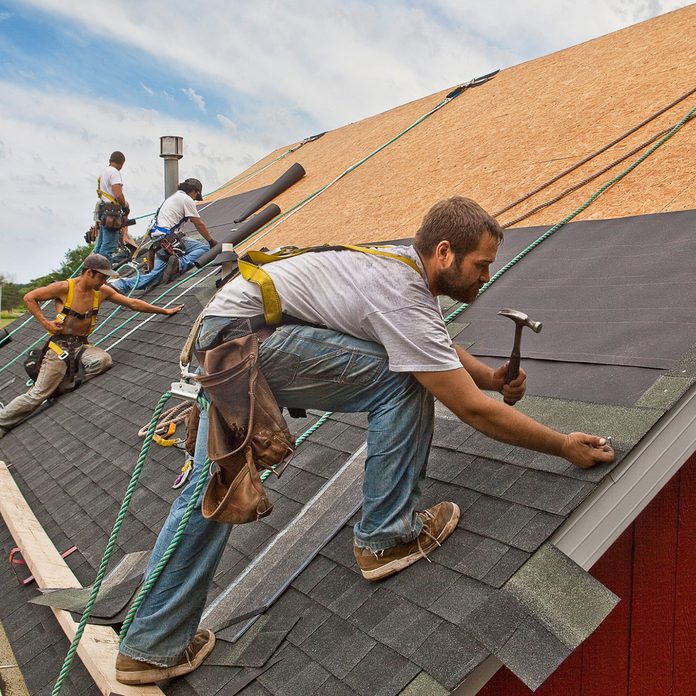
Delaying Necessary Repairs
Waiting too long is one of the most common bad roof maintenance habits out there. Adding a new roof or repairing damage isn’t cheap, but the last thing you want is to put off a small repair and watch it become something much worse.

Not Replacing Missing Shingles
It may just seem like a couple of shingles, but it’s a lot more important than that. A missing shingle can lead to leaks and cause a lot of damage. Shingle repair should happen as soon as you notice the damage.

Walking Too Much on the Roof
More than just the obvious danger of falling off, walking on your roof can leave shingles bare or create gaps between the shingles for leaks. If you do need to venture up on your roof, use a safety harness when appropriate, always wear the right foot protection and use common sense.
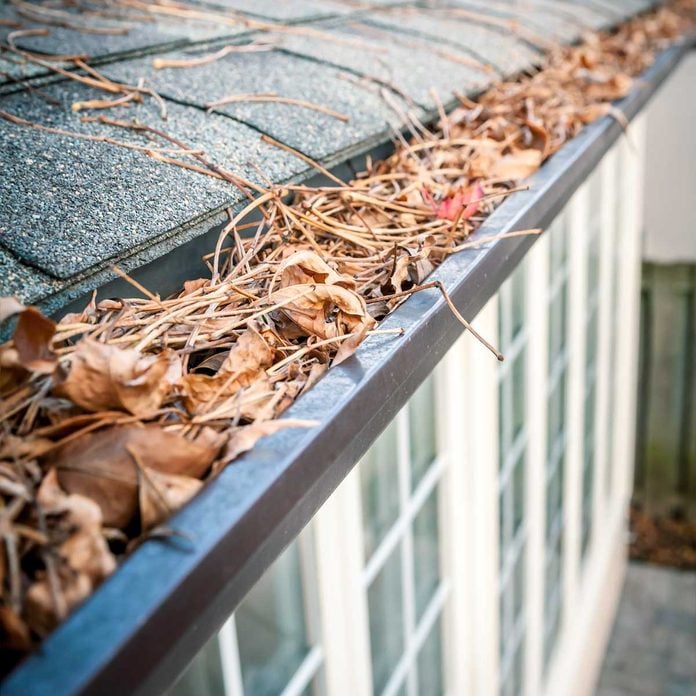
Neglecting Gutter Cleaning
Cleaning out your gutters isn’t a difficult chore. It boils down to remembering to do it. Gutters should be cleaned at least once a year, but may require more attention if debris from trees or other objects tend to clog them. If clogged, water can creep under the roof and sometimes into the foundation. Before you start cleaning, make sure you have the right tools.

Selecting Low-Quality Material
Picking low-quality materials isn’t just about what shingles you use or the type of roof you’re installing. Mistakes like the wrong nail or adhesive may leave your roof more susceptible to damage.
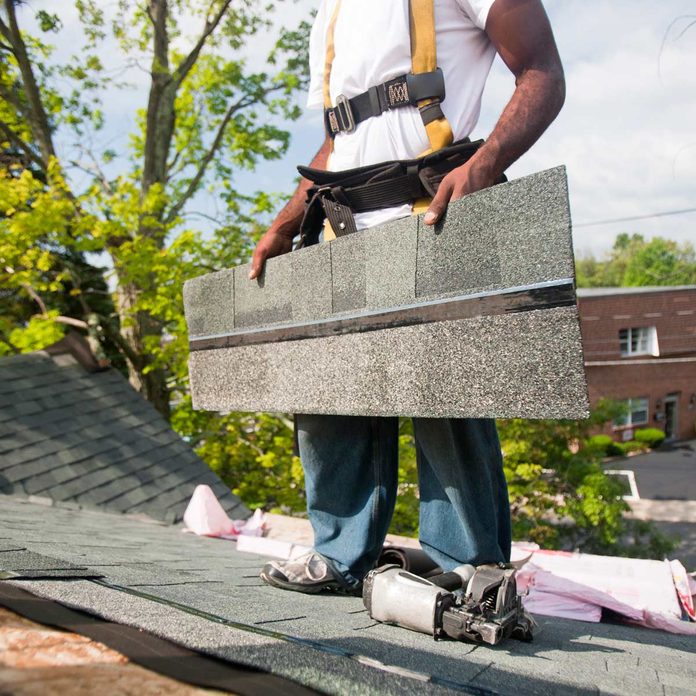
Repairing/Patching Instead of Replacing
Going with a patch instead of a full replacement might save you money in the short run while costing you more in the long run. The first step is knowing what to look for when considering a roof repair vs. replacement.
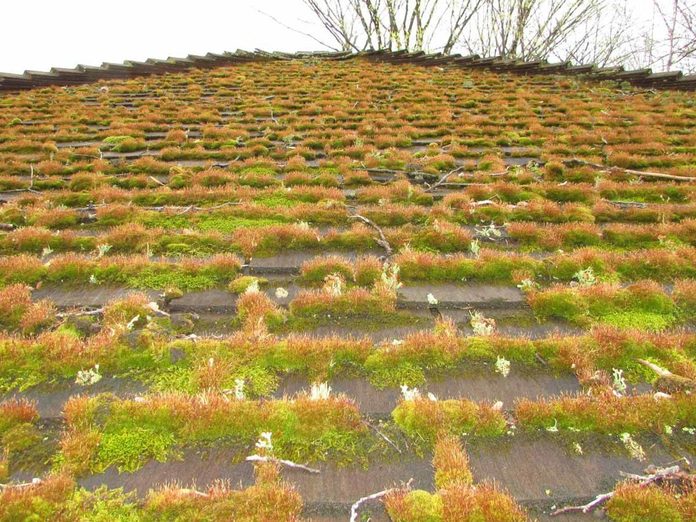
Mold, Moss and Mildew Build Up
Do not let mold, moss, mildew or other issues linger too long. Algae colonies can form in your shingles and do extensive damage. Using shingles treated with algicide keeps the growth at bay for about 10 years.
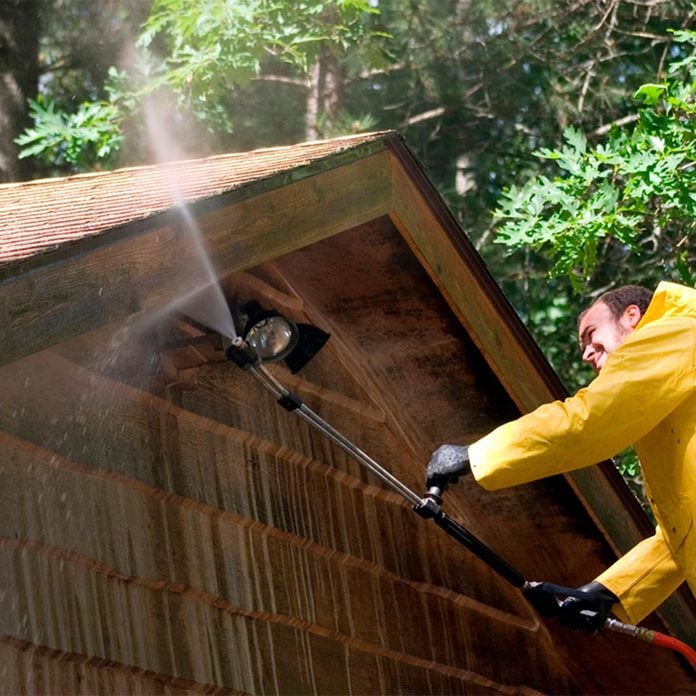
Pressure Washing
While pressure washing can make for fun time-lapse videos or before and after photos, that doesn’t mean it’s good for your roof. Asphalt shingles are made to hold up to heavy rain, but a concentrated beam of water from a pressure washer packs a punch.

Reusing Old Material
Cutting corners with your roof isn’t wise. Just because one area doesn’t look as bad as the rest doesn’t mean it can be reused. If you have doubts, get a pro’s advice or err on the side of caution. Also, consider if an energy efficient roof makes sense for your home.

Laying New Shingles Over Old Shingles
While building codes might permit a second layer of shingles over the first, it’s usually better to strip off the old shingles first. You can efficiently, and accurately, strip old shingles and lay new ones down.

DIYing Too Big of a Project
There’s no shame in hiring a pro for a major repair, and you’ll sleep a lot better knowing there’s a solid roof over your head.

Accepting the Lowest Repair Bid
Similarly, don’t get stingy. The lowest bid doesn’t always mean you’re getting the best deal. Consult online reviews or check with neighbors or friends to learn more about a potential contractor or company you’re hiring.
Roofing is hard work — here are some of the other most difficult home improvement jobs.



















